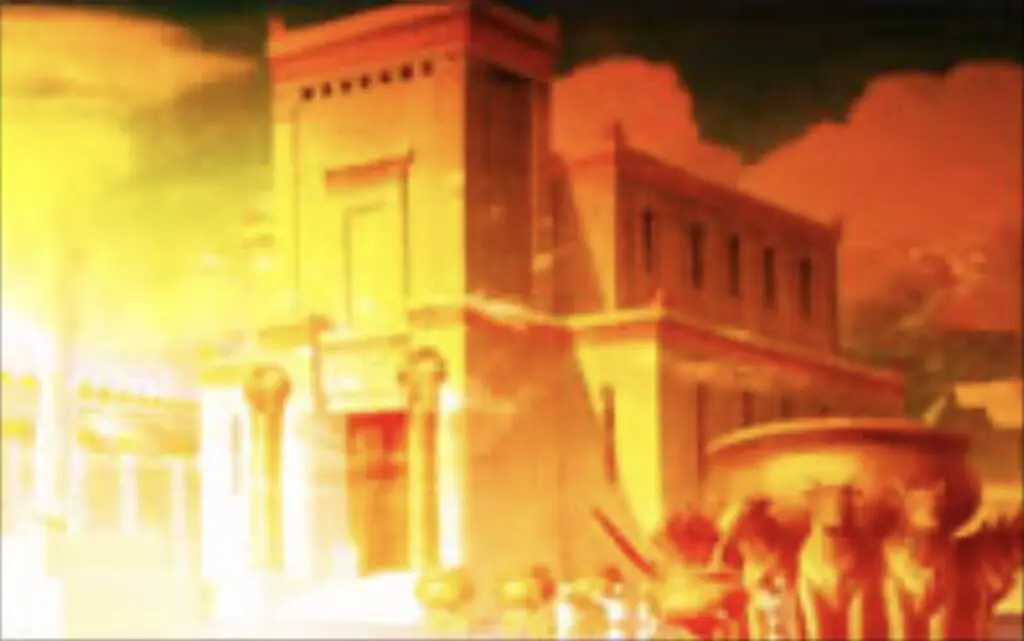The Weekly Reflektion 06/2023
Most companies experience periods where workload is high, multiple challenges need to be faced, and the people feel like they have their backs against the wall. The management in the company has of course a responsibility to ensure safety and profitability. They also need to help the organisation cope with their problems and emerge stronger when the crisis is over.

When your organisation is under pressure, how do you help them cope?
The destruction of the first Jewish Temple in 586 BCE
According to Jewish tradition, the Temple of Solomon, also known as “the First Temple,” was built by King Solomon (circa 990–931 BCE) on the spot where God created Adam. The plans for the temple were given to Solomon’s father King David by God through the prophet Nathan. According to Jewish lore King David wanted to build the temple himself, however God had decreed that his son should be awarded the task. The temple was of great symbolic importance for the Jewish people and its completion marked the start of a golden era and the temple became a centre for wisdom, riches and splendour. The temple was destroyed in 586 BCE by the Babylonian Army on the orders of Nebuchadnezzar, the King of Babylon when he conquered Jerusalem. Many of the Jewish people were massacred and others were marched to Babylonand into exile and slavery. The Jewish people managed to rebuild their lives physically and spiritually and a second Temple was constructed by Jewish people returning to their holy land after the Babylonian empire was conquered by the Achaemenid Persian Empire.
The Jewish exile in Babylon was a terrible experience and the rabbis, as the spiritual leaders, had an important role to play. Their role was divided into three distinctive parts:
• They shared the suffering of the people and tried to explain their situation in a way that gave meaning. They allowed people to talk about their situation and listened to their concerns.
• They provided suggestions on how things could be improved and encouraged cooperation across the community. They helped to implement these improvements and to make things better for everyone.
• They gave hope for the future. They talked about the second temple and a new age of glory that would come if only the people could hold out for a better future. It was their destiny to be liberated and even if they themselves did not experience it their children and grandchildren would.
We have worked with many companies that have experienced challenges that have stretched the organisation to almost breaking point. We have seen different approaches from the management on how to tackle these challenges while still achieving the required safety level to ensure no one gets hurt while the operation is ongoing. There can be complicated technical challenges where systems and equipment just do not perform as expected. While these are demotivating, we know they well eventually be solved. Sometimes the management throws resources at the problems and hopes that additional people will help the situation, and sometimes this works. The approach that we advocate for the management in the first instance is the approach of the Jewish rabbis. Share the pain and understand the situation. Encourage cooperation and help people with the problems they experience in their daily tasks. Give them hope for the future and that their efforts are worth making. Appreciate that everyone wants to do a good job and be part of a success.
